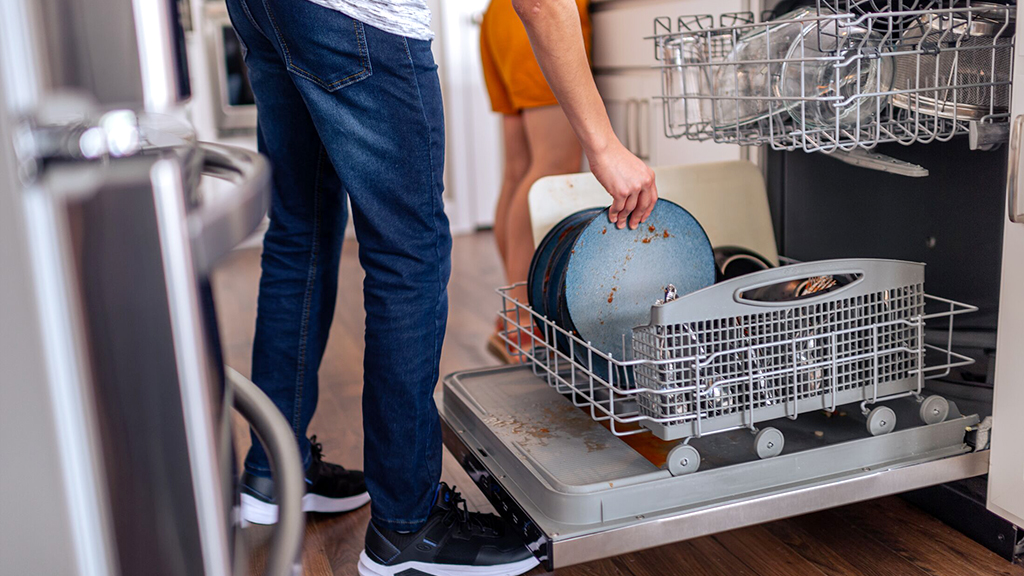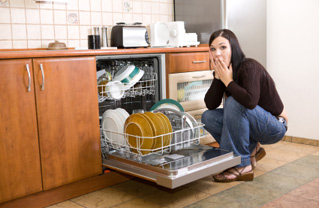One Of The Most Typical Dishwasher Troubles, as well as How to Deal With Them
WebsiteJust how do you really feel in relation to How to Troubleshoot & Repair a Dishwasher?

Having your dish washer malfunction or malfunction can be a big deal and cause some pain in your home. Dishwashing machines are machines that we use to clean dishes and also cutleries instantly to save us the stress of by hand doing it.
Like every other machine that reduces human effort, dishwashers can break down as well as develop some mistake eventually in time. There are numerous mistakes your dishwashing machine could establish, and while several of them can be resolved by changing some parts or repairing them, other extra serious defects will certainly require that you obtain a new dishwashing machine.
This article will certainly identify a couple of common faults your dish washer might create to impede its total performance and also how these mistakes can be solved.
Usual Faults
Usual dishwashing machine mistakes might vary from minor to significant ones. Depending upon the level, you will either require the services of specialist plumbings to deal with or replace it.
Several of the most usual faults consist of:
Leaky Dishwashing machine
This is probably the most day-to-day dishwashing machine trouble, and the bright side is that it is easy to determine. Leakages happen as a result of several factors, and also the leaks can ruin your kitchen. Typical sources of dishwasher leakages consist of;
If your dishes and cutleries come out of the dishwasher and still look dirty or dirty, your spray arms might be a trouble. In a lot of cases, the spray arms can get clogged, and it will need a quick clean or a replacement to work effectively again.
Failure to Drain
Often you might observe a big quantity of water left in your bathtub after a laundry. That is most likely a water drainage trouble. You can either examine the drainpipe pipe for problems or clogs. When unsure, call a specialist to have it inspected as well as repaired.
This is one more common dishwasher problem, and it is mainly brought on by food particles or oil sticking around in the maker. In this situation, search for these particles, take them out and do the dishes with no recipes inside the maker. Laundry the filter completely. That will help get rid of the negative odor. Guarantee that you remove every food particle from your recipes prior to moving it to the device in the future.
Conclusion
Several of these usual dishwashing machine faults can be fixed conveniently in the house, however in some cases, the mistakes could be substantial as well as may require the focus of experts. If you live in Rochester, Syracuse, and also various other parts of America, let the professionals effectively identify what could be wrong with your dish washer as well as proffer a solution.
We additionally set up dishwashers if you simply purchased a new one or plan to replace your very own. With our several years of experience in the industry, we make certain to provide you the best feasible services.
7 COMMON PROBLEMS THAT LEAD TO DISHWASHER REPAIR OR REPLACEMENT
Your Dishwasher is Leaking
As with a leaking clothes washer, there are many potential reasons why your dishwasher is regularly leaking. Among other problems, your leaking dishwasher may have:
A damaged drainage hose A faulty pump and/or pump seal A bad door seal (this is likely as dishwashers age since the seals become brittle) Overloading can also be the cause of occasional leaking, so it’s wise to follow your dishwasher manufacturer’s advice on how to load plates, utensils, and larger items like pots and pans. You can also look for information on how to properly load your dishwasher online. This is a subject that many people have opinions about, and there are tons of dishwasher loading tutorials available, believe it or not!
You Have Dirty Dishes Even After the Dishwasher Has Run
This is another problem that can be caused by overloading your dishwasher, though you may also be using the wrong detergent for your particular dishwasher. This is easy enough to do, as there are lots of different dishwasher detergent formulations for sale—powders, gels, and dissolving tablets.
Check your dishwasher’s manual for more information or visit the manufacturer’s website for help choosing the detergent type that works best with your particular appliance. All the best dishwasher brands should offer support and troubleshooting advice on their websites.
Unfortunately, sometimes more serious problems—like damage to circuitry or electronic control components—can be the cause of your dishes not getting clean. While relatively uncommon, power surges can damage your dishwasher’s electronics, which can prevent cycles from fully running. If your dishwasher has an electronic display of any kind, it may show error codes for incomplete cycles. You’ll need to contact a reliable dishwasher repair resource for help with this kind of problem.
Your Dishwasher is Not Fully Draining
This problem is often due to clogs in the drainage system of your dishwasher. Improper drainage can create huge messes, like damaging leaks and bacterial growth inside and outside of your dishwasher. Some dishwashers have self-serviceable filter components that should be cleaned out regularly to prevent clogging.
However, your dishwasher could also have more significant problems with its drain pump or other components. As we discussed above, damaged circuitry can prevent cycles from running or advancing properly, and that could be the culprit in this case, as well. It’s best to call an appliance expert for help with dishwasher repair due to drainage failure.
Your Dishwasher Won’t Turn On
A dishwasher that won’t turn on doesn’t necessarily equal a “dead†dishwasher. You could have a simple blown fuse or tripped breaker affecting your dishwasher’s power supply. Check to be sure your dishwasher is receiving the power it needs to run.
Another common issue that will prevent your dishwasher from starting up is a faulty door latch. If your dishwasher can’t close properly—or the electronic control system “thinks†it’s not closing properly—the appliance won’t start.
Your Dishwasher Has Water Fill Problems
Another issue that is sometimes caused by damaged circuitry and cycles that aren’t running or advancing correctly, water fill problems can be tricky to troubleshoot. If your dishwasher is not filling at all—or won’t stop filling as it operates—it could be due to a faulty float or float switch, or a water inlet valve problem, too. And these issues are best addressed by dishwasher repair professionals.
https://www.kaappliance.com/blog/7-common-problems-that-lead-to-dishwasher-repair-or-replacement

We were shown that report on Why is My Dishwasher Not Cleaning Properly? through a good friend on a different web property. For those who enjoyed reading our post plz make sure you remember to pass it around. We truly appreciate reading our article about How to Troubleshoot & Repair a Dishwasher.
Explore Now